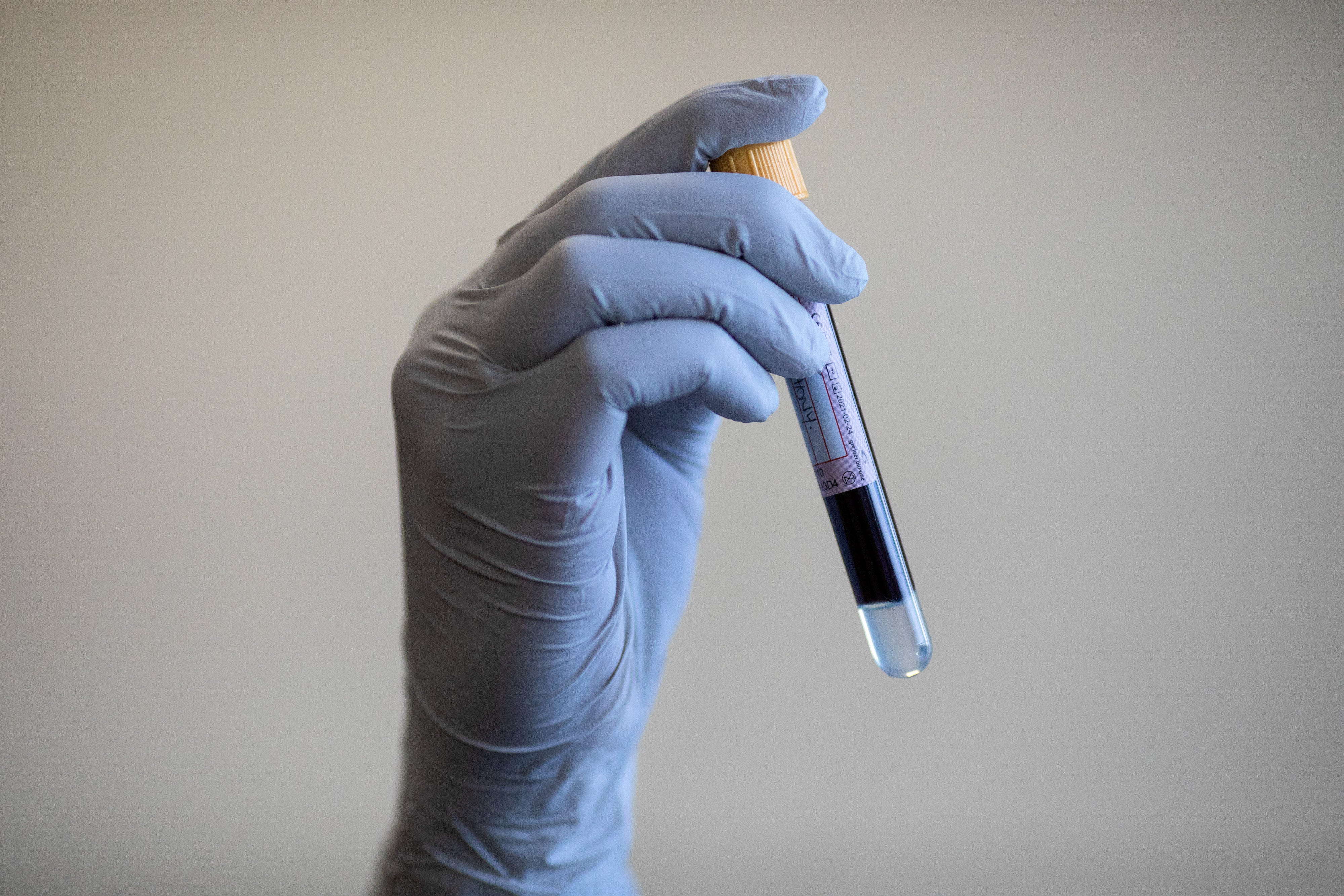Blood test shows promising results in detecting cancer early, study says
The so-called liquid biopsy analyses DNA in the blood to detect subtle signs of cancer.

A new blood test to detect cancer at an early stage has shown promising results, according to a study, as scientists aim to make the process as common as cholesterol or blood sugar testing.
Researchers from Oxford University say the test, known as TriOx, accurately identified the disease, including in its earliest stages when it is hardest to detect, across six types of cancer: bowel, oesophageal, pancreatic, renal, ovarian and breast.
The test – a so-called liquid biopsy – analyses DNA in the blood to detect subtle signs of cancer and could offer a fast and less invasive alternative to existing diagnostic tests.
Professor Anna Schuh, professor of molecular diagnostics at the University of Oxford and lead researcher on the study, said: “Our new test brings together the best of cutting-edge science and machine learning.
“It allows us to look at the whole cancer genome, improving reliability.
A simple blood draw could eventually be all that’s needed to screen for multiple cancers, giving patients and doctors a faster, more convenient tool to stay ahead of the disease
“While this test is still early in development, with further work we believe it has the potential to improve survival rates for millions worldwide, by enabling implementation of routine blood tests to catch cancer earlier, when it’s easier to treat.”
The test had a 94.9% sensitivity rate, correctly identifying 56 out of 59 cancer samples, the study said.
It was also able to distinguish those without cancer and it accurately identified eight of out of nine non-cancer samples, leading to a 88.8% specificity rate.
This enables patients without cancer to be spared unnecessary procedures, while those with cancer can receive treatment sooner, the researchers said.
The study evaluated 91 blood samples, with two-thirds (61) of the cases with confirmed cancer and one-third (30) without.
Of the patients with cancer, five had stage one, 20 had stage two, 35 had stage three and one had stage four.
Two-thirds of the patients were males and 71% were aged 60 or older.
Dr Dimitris Vavoulis, from the University of Oxford and co-lead researcher, said: “Although our approach is still early in development, we envision that a simple blood draw could eventually be all that’s needed to screen for multiple cancers, giving patients and doctors a faster, more convenient tool to stay ahead of the disease.”
Cancers are more likely to be cured if they are caught early.
A process called the Galleri test is being trialled in the NHS, which works by detecting tumour DNA circulating in the blood.
The Oxford research team is developing the test across more cancer types and larger patient groups.
The study was funded by Innovate UK and the NIHR Oxford Biomedical Research Centre and the findings are published in the Nature Communications journal.
Bookmark popover
Removed from bookmarks